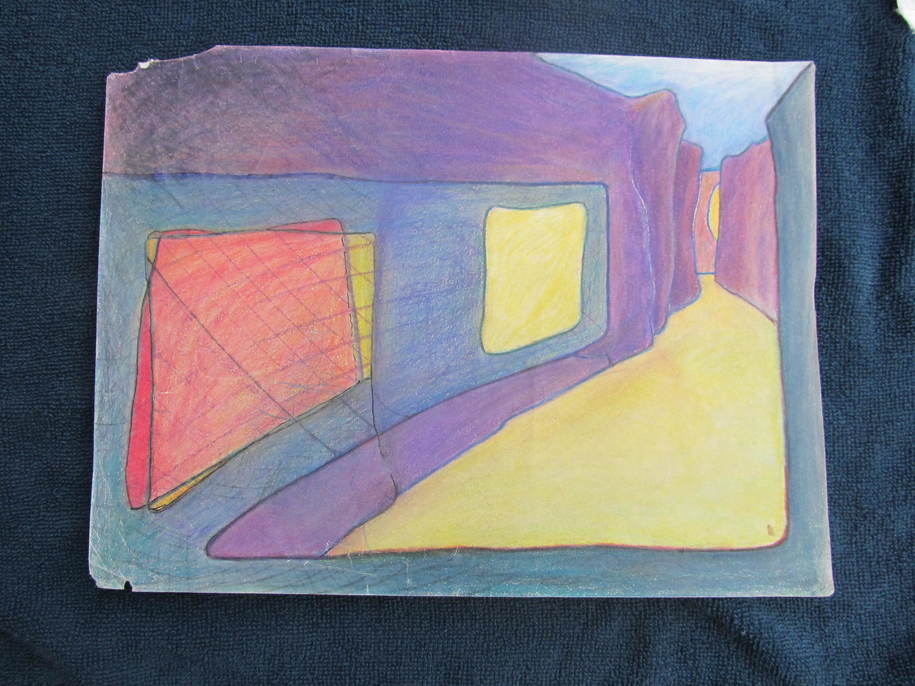
I began this essay as a comment in response to a cartoon which appeared as one of the “diaries” on Daily Kos. Realizing that it was a long comment, I decided I might as well turn it, for all the good doing so will accomplish, into a diary in its own rightl
I find the current bruhaha about “artificial intelligence” utterly maddening. Why?
Because—and I know this declaration will have no effect since the populace as a whole, along with the duplicitous creators of the noisome stuff, has already decided to label this crap “artificial intelligence”—but this stuff they’re making all the noise about right now is NOT artificial intelligence.
It is extremely complex computer-generated and program-directed behavior, and it is capable—in the same sort of way that “Big Blue” is capable of “playing” chess—of offering deceptively normal responses to typical verbal clues, but it is NOT artificial intelligence. The people who push this stuff are claiming way too much when they give it that name.
In one sense, all intelligence is artificial. It has been constructed, in one fashion or another, from less complex nervous systems. In fact I maintain that, “intelligence” is the almost inevitable result of the increasing complexity of any nervous system, whether that nervous system is biological or otherwise.
We have not begun to accurately define what we mean by “intelligence”. The investigators/scientists sometimes speak of “consciousness” or “awareness,” and the transference of such undefined states of being to electronic substrates, as if the higher-level abstract functions of the cerebral cortex were all that were involved in identity, and ignoring the fact that we have not defined in any meaningfully strict way what we mean by “intelligence,” “consciousness,” or “awareness.”
I love science, but too often lately scientists mistake their bright ideas for axioms, and make assumptions on their supposed axioms, not on the demonstrated facts. And the general populace, as baffled by science as true believers in the past have been baffled by the incredibly etiolated theologies of their priests, cannot tell when the scientists are speaking of established facts, and when they are merely elaborating the implications of ill-defined concepts as if they were not ill-defined. I’m sorry, but scientist or no scientist, that’s bogus thinking.
As, for example, the assumption that “intelligence”—so very far from an adequately defined concept, yet one we treat as if it were well-defined because, after all, “everybody” knows what we mean—or “awareness,” or “consciousness,” were “just the program running on the computer of the mind.”
Has that assumption EVER been tested? Or is it simply a very beguiling metaphor? I’m pretty sure the latter is true. How would you even go about testing it? Yet based on the assumption that the proposition is true, we create a plethora (you know this is a serious essay if I can work “plethora” into it), nay, a universe, of further implications.
Just as uncertainty is necessary for free will, true intelligence must be complex enough to display uncertainty—and the ability to function reasonably despite the inevitable uncertainty. We are a long, long way from intentionally creating “artificial intelligence.”
Did you notice the word “intentionally”?
I’m just about convinced that we can give rise to artificial intelligence only when we begin to lose track of how it functions. Nobody understands Fortran any more, yet there it is, way down there on the basic levels, doing something.
In the same way that in the far distant past individual cells united into systems so complex they required nervous systems to manage them, and the nervous systems themselves eventually became so complex that in order to function they forced to create not only models of the biological creatures they governed, but models of their own functioning (intelligence!) perhaps we have, unintentionally, already given rise to an artificial intelligence we are not even aware of.
The internet/communications complex may very well function as the nervous system substrate of a new sort of creature: the species conceiving of itself as an individual. If that network has not yet reached that level of complexity, it may soon reach it. If it already has, or if it should eventually do so, then we will have given rise to an “artificial” intelligence, though we will not, in the strict sense, have created it. (And by the way, if such a creature does or should come to exist, we could no more understand its thoughts than one of any of our brain cells could understand the thoughts of the brain it belongs to.)
But a true artificial intelligence? No. This merchandise they’re pushing is bad enough, especially when they (presumably to glamorize the product) pretend that it is capable of original creative behavior instead of merely choosing very rapidly among a list of semi-credible alternatives. But it is NOT “intelligence.”
Go ahead and worry about its effects. But don’t worry about “artificial intelligence.” The day for worrying about that is a long way off (especially if the silicon boys keep haring off after the wrong approach).
